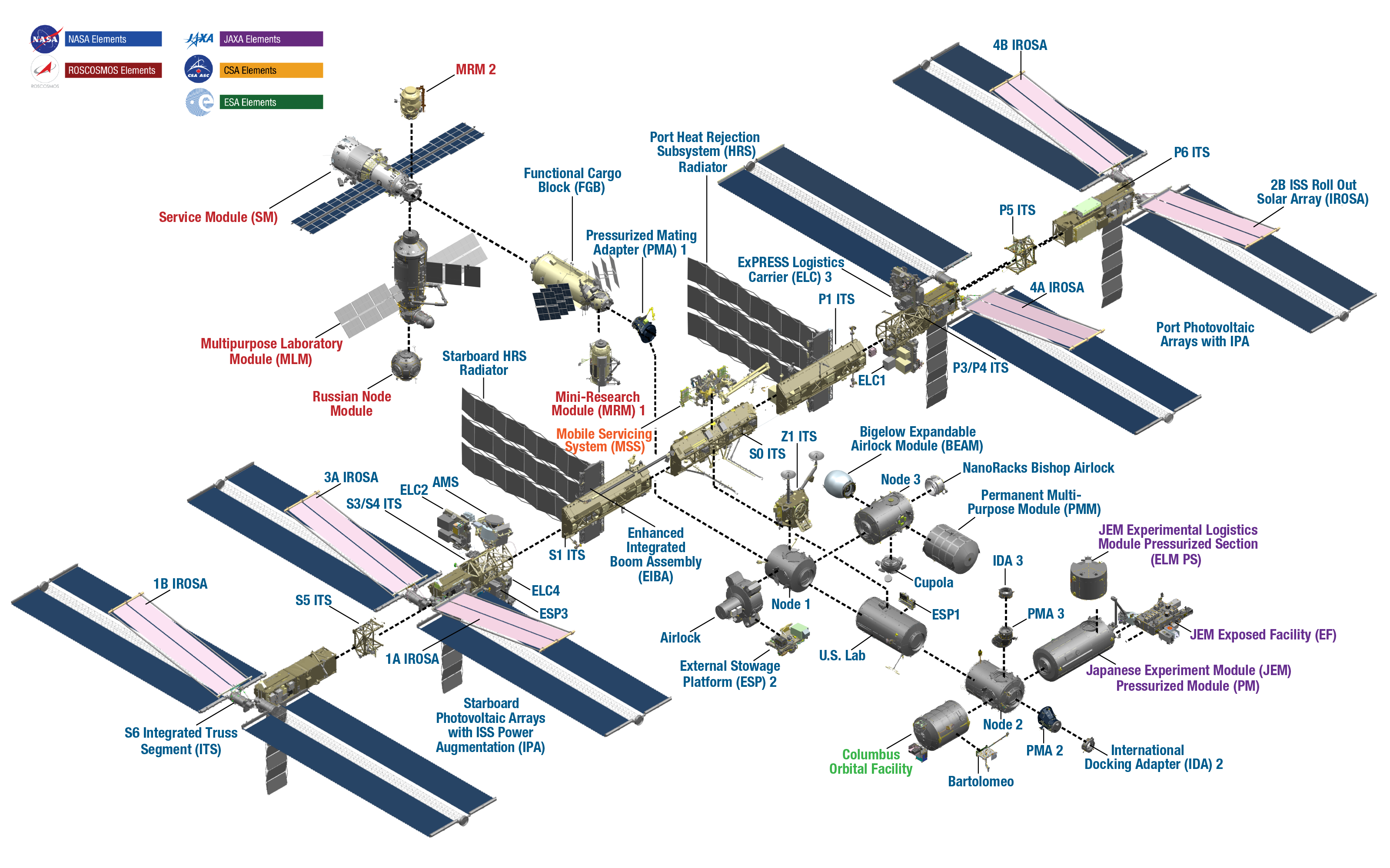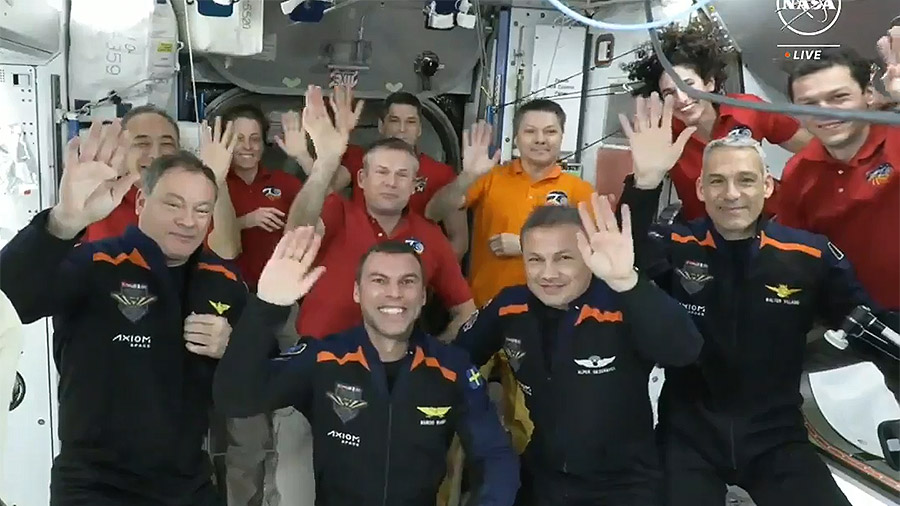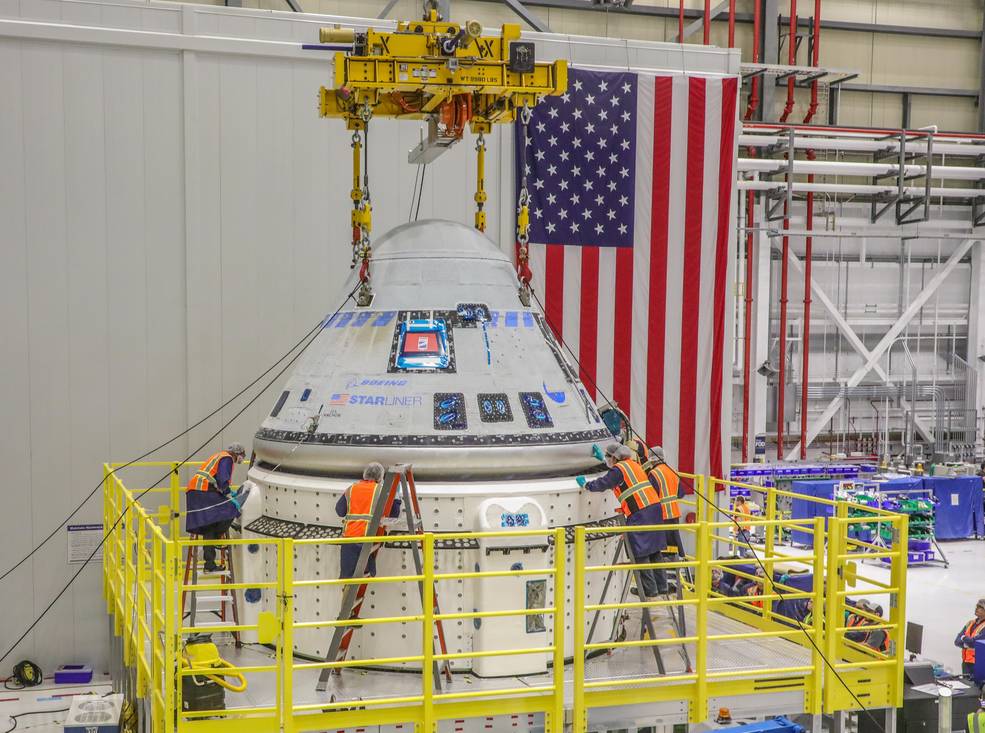
A jam-packed day of orbital upkeep kept the International Space Station residents busy on Monday. The Expedition 71 and Boeing Crew Flight Test crews worked an array of maintenance and cleaning tasks after taking a weekend off.
NASA astronauts Tracy C. Dyson and Matthew Dominick kicked off the day by loading trash and discarded gear inside Northrop Grumman’s Cygnus spacecraft, which will be released from the Unity module by robotics ground controllers this month for disposal over the South Pacific Ocean. Later in the afternoon, the duo was joined by NASA astronauts Jeanette Epps and Mike Barratt to organize and relocate station gear and dispose of trash in portions of the orbital outpost.
Earlier, Epps conducted an Amateur Radio session with students from the Moroccan School of Engineering Sciences in Casablanca, Morocco. Afterward, she and Barratt worked inside the Destiny module to clean portions of the air duct system and replace fasteners on some of the panels that house the duct work. Barratt then moved on to inspect and photograph headset extension cables and audio gear for ground teams to analyze.
Starliner’s Commander and Pilot, Butch Wilmore and Suni Williams, spent the morning in the Permanent Multipurpose Module, organizing stowage and tidying up. Wilmore then moved into the Japanese Experiment Module to disassemble an empty NanoRacks CubeSat Deployer in preparation of upcoming NanoRacks missions.
Later on, Wilmore prepped and viewed samples for Moon Microscope, a demonstration that allows flight surgeons on Earth to diagnose illnesses and could provide diagnostic capabilities for crews on future missions to the Moon and Mars. Meanwhile, Williams conducted some routine orbital plumbing, then audited U.S. stowage items housed inside the Zarya module.
The next spacewalk outside the orbiting complex is scheduled for July 29 with Dyson and Barratt. This change allows teams on the ground to continue to troubleshoot and understand the water leak in the service and cooling umbilical unit that forced an early end to a spacewalk on Monday, June 24.
In the Roscosmos segment, three cosmonauts continued orbital upkeep tasks. Commander Oleg Kononenko and Flight Engineer Nikolai Chub teamed up to inventory headsets and audio equipment crews use to talk with ground teams. Afterward, Chub completed some routine cleaning in the Zvezda Service Module. Flight Engineer Alexander Grebenkin replaced a few hoses on the Roscosmos water processing system, then charged the tablets the crew uses to complete and track daily tasks.
The space station is orbiting a bit higher today after the Progress 87 cargo craft fired its thrusters for 9 minutes and 10 seconds on Saturday, June 29. This orbital reboost sets up the correct phasing for the launch and rendezvous of Progress 89 slated for arrival mid-August.
Learn more about station activities by following the space station blog, @space_station and @ISS_Research on X, as well as the ISS Facebook and ISS Instagram accounts.
Get weekly updates from NASA Johnson Space Center at: https://roundupreads.jsc.nasa.gov/
Get the latest from NASA delivered every week. Subscribe here: www.nasa.gov/subscribe




